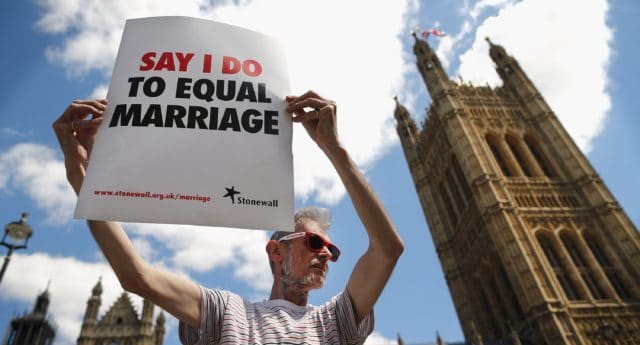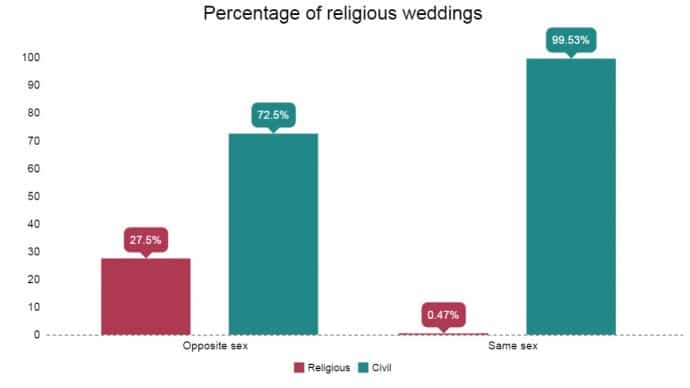
Barely any same-sex couples are opting for religious wedding ceremonies in England and Wales, data has revealed.
Same-sex couples were able to enter religious unions for the first time when same-sex marriage became legal in 2014. Prior to this gay couples were only able to enter civil partnerships, which were not permitted in religious institutions.
However, despite the ability to have a religious ceremony, data released by the ONS this week has shown same-sex couples overwhelmingly shunned the option of a religious ceremony.
Just 0.47 percent of same-sex weddings in 2014 were religious ceremonies, with 99.53% opting for civil ceremonies. Of 4,850 same-sex marriage ceremonies, only 23 were religious.
By comparison, religious ceremonies made up 28 percent of weddings for opposite-sex couples.
The news is unsurprising given that all of the largest religious groups in the UK ban same-sex weddings, including the official bodies for Catholicism, Islam and Orthodox Judaism.
The Church of England is legally banned from conducting same-sex weddings under explicit provisions in the Marriage (Same Sex Couples) Act.
Unitarians, Quakers, Reform Judaism and Liberal Judaism are some of the religious bodies who do invite same-sex couples to marry in their places of worship.
This statistic is reflected in which days of the week same-sex couples chose to have their weddings on.
Sunday, a day which is favoured for weddings in certain religions, was the least popular day for same-sex marriages.
British Humanist Association chief executive Andrew Copson said that the new figures strengthened his organisation’s campaign for legal recognition of humanist marriages in England and Wales.
He said that the option “would be particularly valued by same-sex couples, who at present overwhelmingly feel they have no choice of type of marriage at all.”
Humanist weddings are permitted in Scotland, but in England and Wales only approved faith groups can carry out non-civil ceremonies.








